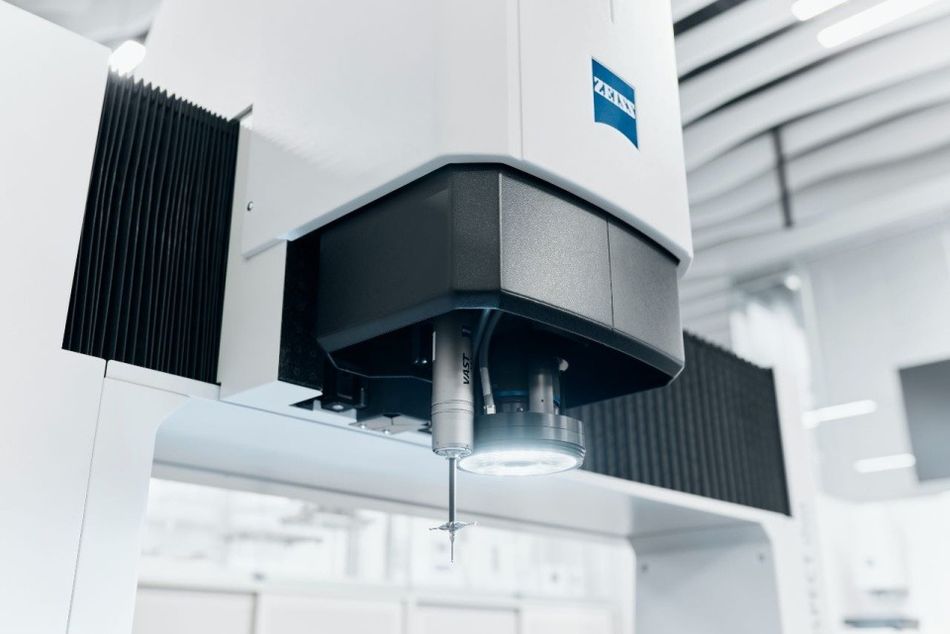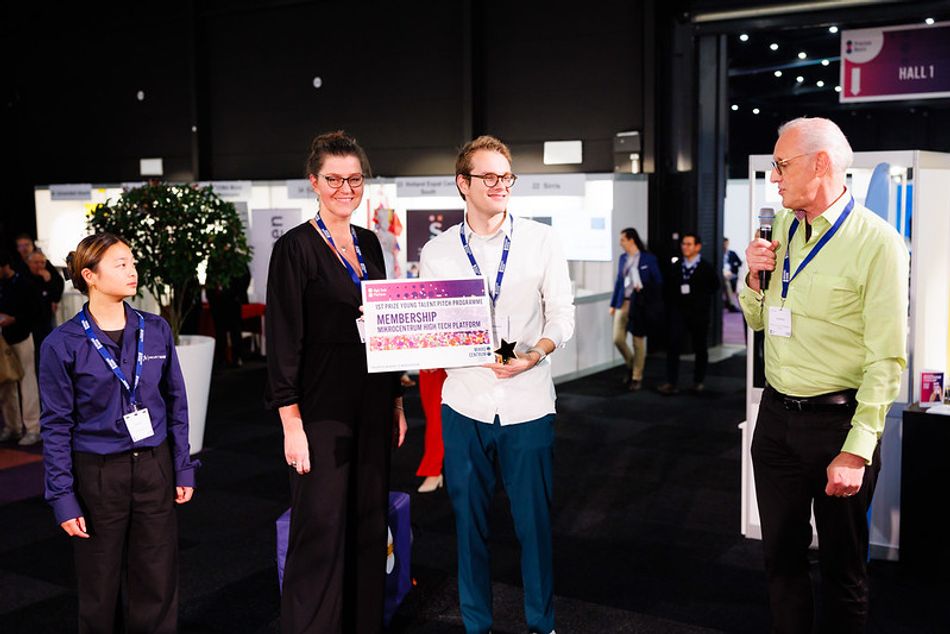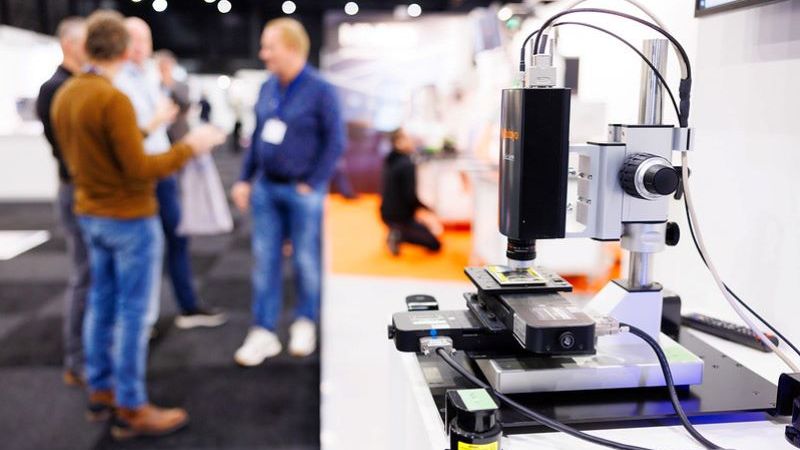Precision in Practice: Highlights from the 23rd Precision Fair
The 23rd Precision Fair showcased innovations like Hexagon's MarvellScan and Maxon's SCARA robots, with Aero Delft winning the Young Talent Pitch for their hydrogen aircraft.
The 23rd edition of the Precision Fair, held at Brabanthallen in 's-Hertogenbosch, has once again positioned itself as the pinnacle event for the high and ultra-precision technology sectors. This year, 375 exhibitors and experts from international companies, research institutions, and academia gathered to push the boundaries of precision engineering. The event was enriched with 50 inspirational sessions delivered by industry leaders and innovators, encompassing a diverse range of topics from mechatronic systems to micro processing and motion.
The fair not only facilitated a networking arena for professionals but also hosted the prestigious DSPE awards, celebrating significant achievements in the field. Additionally, this year marked the introduction of the International Precision Conference, further highlighting the event’s dedication to fostering global collaboration in pursuing technological advancements.
By bringing together the best of industry and academia, the Precision Fair continues to be a critical hub for sharing knowledge and shaping the future of precision technology.
Wevolver attended the fair and spoke with a few of the innovative exhibitors.
Hexagon: Enhancing Engineering Processes
At the Precision Fair, Hexagon showcased its comprehensive approach to streamlining product development and manufacturing processes with advanced hardware and software solutions. Faruk Pehlivan, representing Hexagon, extended an invitation to their upcoming event, Hexagon LIVE Eindhoven, highlighting their commitment to technological innovation.
Hexagon's solutions facilitate various stages of product development, from CFD analysis to optimise design functionality to G-code preparation for precise manufacturing execution. The standout at the event was their new MarvellScan, an optical scanning device designed for detailed quality checks and reverse engineering. This scanner is distinguished by its autonomous control, flexible movement capabilities, and wireless functionality, making it ideal for ensuring product quality directly against CAD models and enhancing legacy parts through reverse engineering.
These innovations underscore Hexagon's leadership in integrating technology that enhances production efficiency and product reliability, setting a high standard for quality assurance in manufacturing.
Muon Group: Creating microstructures in glass
Muon Group, through its member LouwersHanique, showcased its cutting-edge technology for creating microstructures in glass at the Precision Fair. Their process involves a two-step method using femtosecond laser technology. Initially, the glass is precisely modified by the laser, which changes its internal structure. This modification is followed by wet chemical etching, selectively removing the altered glass to create intricate 3D microstructures.
This technique achieves remarkable precision, allowing for features as small as 1 µm, with tolerances and surface smoothness ideal for specialised industrial applications. Muon Group’s process supports various glass materials like fused silica, sapphire, and borosilicate, catering to a wide range of industries requiring high-precision glass components. Their full suite of capabilities includes not only microfabrication but also complementary services such as optical assembly, CNC milling, and cleanroom packaging, underscoring their comprehensive approach to high-tech glass manufacturing.
Versatile, agile and efficient: Maxon's SCARA Robotics Innovations at the Precision Fair
Maxon showcased its innovative solutions for SCARA robots at the Precision Fair, featuring a holistic approach that optimises robotic motion and design for enhanced efficiency. Representatives Francis De Wilde and Mark van Zutphen introduced a full setup including a driver and a hollow-axis motor which allows for efficient cable management and increased space-saving on production lines. Their specialised programming facilitates dynamic flipping motions between work areas, improving pick-and-place operations. Maxon's focus on compact design and powerful performance optimises the use of space and resources in industrial settings, with future goals aimed at increasing the versatility and speed of robotic arms.
New era in precise inspection launched by ZEISS
ZEISS launched the O-INSPECT Duo at the Precision Fair, introducing a large-scale measuring machine capable of inspecting items like circuit boards and batteries with optical, tactile, and microscopic methods. This innovation addresses the challenges of measuring large objects without cutting them, offering rapid and precise analysis. The system utilises ZEISS's established metrology and analysis software, and was showcased with demonstrations at the event, underscoring its potential to streamline quality control processes in manufacturing.

Innovative Duo Wins Prestigious Wim van der Hoek Award at Precision Fair
The Wim van der Hoek Award, also known as the Constructors Award, was presented during the 22nd Precision Fair. For the first time, the award was given to a duo, Marc Slob and Youp Verbakel, for their innovative design of a machine for automatic assembly of shovels and spades. Their project, which originated from Avans University of Applied Sciences, excelled in terms of design freedom, cost considerations, and production reliability, earning them this prestigious accolade in mechanical engineering design.
For more details, you can visit the DSPE website.
Liquid hydrogen-powered retrofit aircraft wins Young Talent Award
On the inaugural day of the fair, student teams from the nation's top three technical universities competed in the Young Talent Pitch Award, presenting their innovative projects to a panel. The entries included diverse technologies ranging from autonomous racing cars and electric motors to hydrogen-fueled aircraft, a rover designed for the South Pole, and an actual rocket. The competition, which judged entries based on their technical feasibility, social impact, and creativity, concluded with Team Aero Delft claiming the top spot, followed by DARE - Stratos V from Delft in second place.
Aero Delft is pioneering a transformative approach in aviation with its development of a liquid hydrogen-powered retrofit aircraft. The team is committed to advancing hydrogen propulsion technologies, planning a shift from gaseous to liquid hydrogen to drastically reduce aviation emissions. The jury lauded Aero Delft for their project's technical feasibility and innovative approach, highlighting it as a significant stride towards sustainable aviation. Koen Pijnacker's compelling pitch further solidified their standout status in the competition.

Looking Ahead to 2025 and beyond
The fair not only provided a platform for these technological showcases but also set the stage for future collaborations and innovations. Each presentation underscored the industry's focus on enhancing precision and efficiency, driving the boundaries of what's possible in technology and manufacturing.
The next edition will take place on 12th and 13th November 2025. For more details on the event and future plans, visit Mikrocentrum's Precision Fair.

